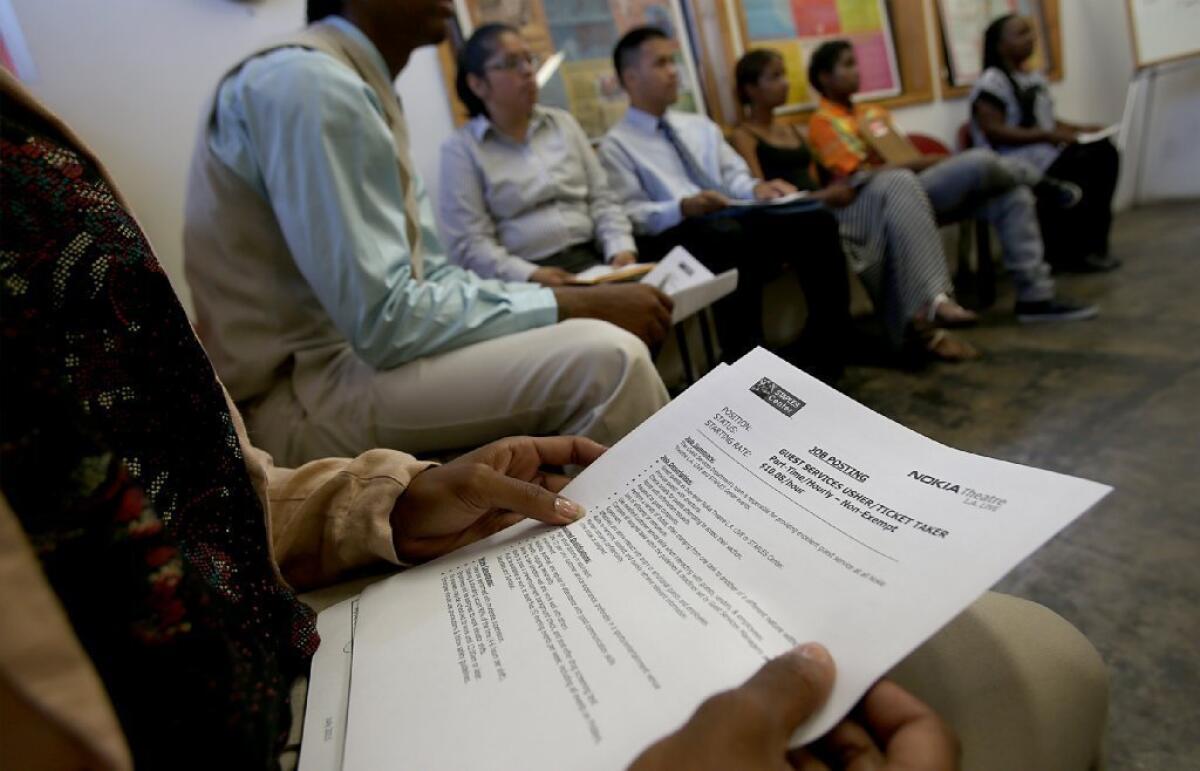Study says economic mobility hasn’t changed in recent decades

As the income gap between the richest and poorest has widened, it’s become almost accepted as fact that Americans today are finding it harder to move up the economic ladder.
But a major new study using millions of anonymous tax records concludes economic mobility has changed little over the last three decades.
The research, being published Thursday by the National Bureau of Economic Research, does not contradict other studies that have shown increasing income disparity or that Americans enjoy less upward mobility than their counterparts in other developed Western countries.
But the new findings are at odds with statements by President Obama and other politicians suggesting it has become increasingly more difficult for someone in America to move up the income rung.
The study found, for example, that a child born in 1971 to households in the bottom fifth of income distribution had an 8.4% chance of reaching the top fifth of earners. That compared to a probability of 9% for those born in 1986.
Similarly, the study said: “Children born to the highest-income families in 1984 were 74.5 percentage points more likely to attend college than those from the lowest-income families. The corresponding gap for children born in 1993 is 69.2 percentage points, suggesting that if anything mobility may have increased slightly in recent cohorts.”
The researchers also looked at geographical differences in mobility rates. They found children in some places had a much higher chance of moving up the income ladder -- as high as 12.9% for Salt Lake City and San Jose -- than their peers in such cities as Charlotte and Indianapolis, where the probability of climbing from the bottom fifth to the top fifth was as low as 4.4%.
“The United States is often hailed as the ‘land of opportunity,’ a society in which a child’s chances of success depend little on her family background,” said a summary of the study, authored by Raj Chetty and Nathaniel Hendren of Harvard, and Patrick Kline and Emmanuel Saez of UC Berkeley.
“Is this reputation warranted?” the summary went on to ask. “We show that this question does not have a clear answer because there is substantial variation in inter-generational mobility across areas within the U.S. The U.S. is better described as a collection of societies, some of which are ‘lands of opportunity.’ ”
ALSO:
IMF says global economy is strengthening
Oxfam report highlights widening income gap between rich, poor
Despite an improving economy, Obama’s approval rating stays low
More to Read
Inside the business of entertainment
The Wide Shot brings you news, analysis and insights on everything from streaming wars to production — and what it all means for the future.
You may occasionally receive promotional content from the Los Angeles Times.









